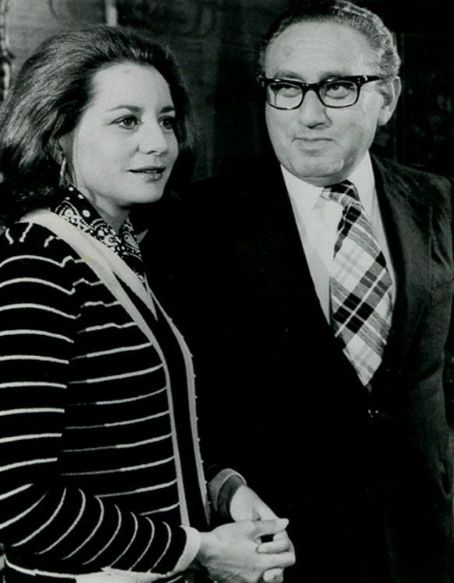On the surface, Joshua 22 is a totally odd chapter of Scripture. It is knee-deep in and totally wrapped with the Old Testament Jewish Culture and a system of worship that is totally alien to me. As I have read through the Pentateuch and now am nearly through Joshua, I find myself saying again and again, "Thank you, Lord, that I live in this time after the coming of Christ!" I am confident that there is a rhyme and a reason to the way God chose to be worshipped in this era, and to the elaborate ways He established the special relationship between Himself and the people He had just delivered from bondage in Egypt, but I don't understand many of the fine details, and I am glad that I don't have to deal with all the rules, restrictions, and boundaries.
Yet, in the midst of this totally "Other" system of worship and Theocratic rule, I find a bunch of people who are just like me and my neighbors. It is on that level that I am able to apply the truth of 1 Corinthians 10:11, a verse that is talking about the experiences of the Jewish nation of this era:
Now these things happened to them as an example, and they were written for our instruction, upon whom the ends of the ages have come. (1 Corinthians 10:11, NASB95)
These folk had the same blood type as me--totally human.
As I say, understanding and applying Joshua 22 is totally dependent on grasping the context, so for those of you who haven't been following the formation and establishment of the Jewish Nation, I offer the following summary:
(If you are up on your Old Testament Jewish History, feel free to skip to the "Meanwhile Back at the Ranch" heading.)
- God, for purposes that run through all of Scripture, chose to establish a nation that is set apart from the rest of humanity, yet with a mission to be a blessing to all the people of the world. This nation would be the descendants of Abraham, Isaac, and Jacob. God changed Jacob's name to Israel, the name that was passed on to the nation that sprang from his descendants. (This begins in Genesis 12)
- It represents no failing on God's part, in fact, it is part of the formation process that the infant nation became slaves of the great Egyptian Empire. (The early chapters of Exodus)
- Under the leadership of Moses, accompanied by an impressive array of miracles--all of which left the Egyptian gods, so-called, lying shattered in the desert sand--God delivered the nation of Israel from its 400-year captivity. (the rest of Exodus and Numbers)
- On the way out of Egypt to the Promised Land, God gave the people a set of laws, a system of worship, and a calendar that would set the rhythms of Jewish life. Many of these patterns can still be seen in the practices of Rabbinic Judaism today. Miraculously, the Lord cared for His people. (The latter part of Exodus, Leviticus, and the first half of Numbers record the history of this time and process.)
- Building a nation that will serve God made up of people who, like all of us, are prone to rebel against God, is a messy process. That messiness brings the refugee nation to a crisis in Numbers 13. As a result of their refusal to by faith obey the Lord, the nation was delayed in reaching their new home. The forty-year tour of the wilderness meant that by the time Jacob's descendants were finally ready to enter Canaan/the Promised Land/Israel, it was a new generation that would enter. (These 40 years are covered in the latter half of Numbers) Before the people moved into their new home a review of the Law was necessary. (That's the Book of Deuteronomy)
- Following a change of leadership from Moses to Joshua (You know, the guy who "fit the Battle of Jericho") the Nation of Israel crossed the Jordan River into their new home. Before they could settle down, however, the current residents needed to be conquered. The "Why?" of that is a bigger, much bigger, matter than this post, not to mention my mind, can contain. (The Book of Joshua, up to chapter 22)
Just one more detail needs to be added to this historical overview. As the Jewish nation was on its way into the region west of the Jordan River that would become their home, a couple of minor kings and kingdoms were defeated. Some of the Israelites, the Tribes of Gad, Rueben, and half the Tribe of Manasseh looked around at the rich pasture land and said, "We'd like to settle down here." After promising to help the rest of the nation conquer the land across the river this plan was approved by Moses. The two-and-a-half tribes were as good as their word. As Joshua 22 opens, these soldiers are going back to civilian life on the farms that were already occupied by their wives and children.
Meanwhile Back at the Ranch:
As soon as they cross the Jordan the Eastside contingent of the Nation of Israel does something that looks to me, and more importantly to the rest of the Jews, to be a total violation of all that they had learned in the last fifty years--do it God's way or suffer the consequences.
When they came to the region of the Jordan which is in the land of Canaan, the sons of Reuben and the sons of Gad and the half-tribe of Manasseh built an altar there by the Jordan, a large altar in appearance. (Joshua 22:10)
When the family on the other side of the river got news of this, they in unison cried out, "Here we go again!" Quoting the great prophet Barney Fife, they vowed to "Nip this thing in bud." No, really they said, "What is this unfaithful act which you have committed against the God of Israel, turning away from following the LORD this day, by building yourselves an altar, to rebel against the LORD this day? (Joshua 22:16). (1995)
They didn't just talk about what their transJordan cousins had done, they mustered an army and were fully prepared to deal with what their relatives had done. And, they were prepared to act before the transgression had nationwide consequences.
In many ways, you have to admire the response of the nine-and-a-half tribes. They had finally learned that God, and God alone, must be worshiped and He must be worshiped as He prescribes. That is a fact that is as applicable today as ever. I was about to say, though, that the Canaan-dwelling Jews went off "half-cocked"--not fully prepared--but maybe they were nine-tenths cocked--"almost, but not quite." Whether the missing element in their action was 50% or 10%, it was crucial.
Two words describe the missing, or faulty, part of their reasoning, "to rebel." Though the Jews living on both sides of the Jordan were Jews, descendants of Abraham, Isaac, and Jacob, miraculously delivered from Egypt and preserved in the wilderness, now there was a river between them. Already, there was reason to other them. They aren't like us. They live on the other side.
Here is where it really gets ugly. We know why they did this. They built this altar "to rebel."
Automobiles have "Idiot Lights" for a reason. It is because so many of us are _____s when it comes to making sure that our cars and trucks have enough oil and coolant in them. In this day in which "othering" has been raised to an international pastime, I propose that we all install "Motive-Alert" warning lights (digital or analog is up to you) on our personal dashboards. Any idiot can look across the river and see that those
other people are building an altar. It takes a smart idiot--one with a working Motive-Alert warning system--to realize, "Yeah, but I don't know why."
To their credit, the "Nine-and-a-halfers" didn't immediately go all ben Rambo on them. They sent Phineas, Henry Kissinger, and some other guys over to the other side to talk--and more importantly, listen--first.
Newsflash:
The diplomatic mission from the nine-and-a-half tribes sent to the other side report: "We are glad that our brothers and sisters on the other side of the Jordan remain true to the core values of what it means to be a part of the nation delivered by God. In an official statement representitives of the two-and-a-half tribes say: ““The Mighty One, God, the LORD, the Mighty One, God, the LORD! He knows, and may Israel itself know. If it was in rebellion, or if in an unfaithful act against the LORD do not save us this day
Further:
"[W]e have done this [built this altar] out of concern, for a reason, saying, ‘In time to come your sons may say to our sons, “What have you to do with the LORD, the God of Israel?
“Therefore we said, ‘Let us build an altar, not for burnt offering or for sacrifice; rather it shall be a witness between us and you and between our generations after us, that we are to perform the service of the LORD before Him with our burnt offerings, and with our sacrifices and with our peace offerings, so that your sons will not say to our sons in time to come, “You have no portion in the LORD.”
In conclusion:
“Far be it from us that we should rebel against the LORD and turn away from following the LORD this day, by building an altar for burnt offering, for grain offering or for sacrifice, besides the altar of the LORD our God which is before His tabernacle.”
I encourage you to read Joshua 22 on your own. Join me in applying the 1 Corinthians 10:11 principle to this passage. "What can I, on a personal level, learn from this passage?" and "As I pray for my leaders, how does the experience recorded in Joshua 22 inform what I ask on their behalf?"
Though it wasn't forever after, Joshua 22 ends with the people living happily together. The river was a reality. The "othering" division that almost took place didn't need to be.




